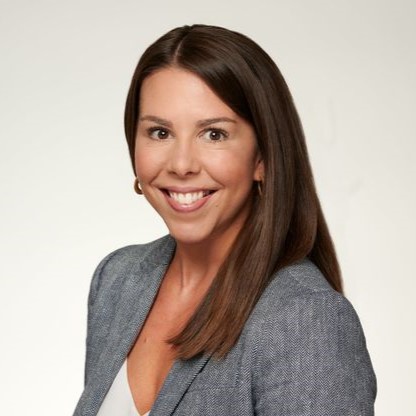A Pharmacy Week Perspective: Preparing for Upcoming Legislative Impacts with Sinai Chicago

During National Pharmacy Week, October 19-25, as we celebrate pharmacists’ and technicians’ invaluable work improving patient care and ensuring access to affordable medication, we reflect on the importance of the 340B Drug Pricing and Medicaid Programs that help pharmacists and essential hospitals support these efforts.
Many who care for large percentages of uninsured and underinsured patients are feeling great uncertainty around the impact of new legislation including H.R. 1, the Inflation Reduction Act, and the 340B Rebate Model pilot program implemented by the Health Resources and Services Administration (HRSA).
Legislative Impact on Sinai Chicago
Sinai Chicago, the largest private safety-net health care system in Illinois, serves an area of about 1.5 million people, many of whom face inequities with disproportionate shares of chronic health conditions, violence, transportation challenges, economic challenges, and educational disparities in Chicago’s West and Southwest communities. Sinai relies heavily on government payors for 85-90% of its patients, with 70% of their patients reliant on Medicaid.
“We’re in a fight every day to keep the lights on and the doors open. Our equity mission is at odds with the economic realities and challenges we’re facing,” said Tejal Patel, PharmD, MHA, BCPS, vice president of operations for Sinai Chicago.
Sinai Chicago provides about $120 million in community benefits annually, of which $50 million is currently spent on charity care, according to Patel. They are ranked fourth in the nation for fair share spending, which she explains is an investment into their communities in excess of what they receive from their tax breaks.
Cuts in Medicaid or Medicare spending are a threat for safety net hospitals like Sinai Chicago. “Especially when 70% of our patients are covered by Medicaid and reimbursement is generally lower than the actual cost of care.”
“Many of the cuts proposed can essentially destabilize access to care, not only for the patients that we serve, but for patients across the country who are facing similar realities,” said Patel.
While there is still work to be done in assessing the implications of the new legislation, Patel explained that cuts could impact areas like preventative medicine, primary care, specialty pharmacy services, and community programs such as violence prevention.
“Cutting any of these programs would mean seeing an increase in patients coming into the emergency department (ED), overcrowding in the ED and worsening health outcomes, because you don’t have access to these clinics and programs that patients need,” said Patel.
She also stated that implications of the 340B Rebate Model pilot program, should it go into effect, will make it more difficult for hospitals like Sinai Chicago, by putting them at greater risk of having to purchase drugs at full cost.
Minimizing Legislative Impacts Through Specialty Pharmacies
One of the ways Sinai Chicago is preparing to minimize the impact of upcoming legislative changes is through their partnership with Clearway Health, a specialty pharmacy services company collaborating with Sinai Chicago to build and operate an outpatient specialty pharmacy.
“We knew [this partnership] would be fundamental in keeping our specialty pharmacy services going strong and would allow us to bring care that our communities need but haven’t had direct access to,” said Patel.
Prior to this collaboration, Sinai Chicago offered a community retail pharmacy, and all their specialty medications were sent to contract pharmacies. However, 340B covered entities such as Sinai Chicago have an opportunity to open their own specialty pharmacy and maximize their 340B network integrity so that eligible patients receive discounted medications directly from the hospital. This model allows the hospital to save money on dispensing fees it would otherwise pay to the contracted pharmacy.
“Half of drug costs are related to specialty care services. By having access to specialty medications, we are improving the care our patients receive while also maximizing savings,” said Patel. “Having a specialty pharmacy is a big deal, because not many safety-net hospitals have specialty care, let alone specialty pharmacy services.”
“You’re making sure patients have access to the appropriate therapies, that there’s care coordination, a multidisciplinary approach, which helps to improve long-term outcomes for patients and also builds upon our mission, which is to improve the health of the individuals and the communities we serve,” said Patel.
From an operational standpoint, Sinai Chicago is also looking at each of their service lines to evaluate what can be done in response to the legislative changes.
“We’re taking a look at each aspect of our finances, from revenue cycle, charge capture, denials review to our day-to-day operations and expense management,” said Patel.
Protecting the 340B and Medicaid Programs
Sinai Chicago also plays a significant role in the advocacy space at both the state and federal level, working on important issues that support their mission. Their advocacy agenda falls under three main tenets: 1) Affordable and Accessible Health Care; 2) Eliminating Health Disparities; and Systemic Racism and 3) Building Government Relationships.
The health system works closely with a variety of stakeholders to advance their agenda, from internal leadership and frontline caregivers to their trade associations, like America’s Essential Hospitals, and government and community partners. Critical issues Sinai Chicago has been protecting are the 340B and Medicaid Programs, which allow them to serve their community.
National Pharmacy Week is an opportunity for all pharmacists and essential hospitals to consider how best to support the critical work that is needed to ensure access to affordable medications and what steps they can do to evaluate, prepare, and advocate for essential programs such as 340B and Medicaid in a changing legislative landscape.
Author

Allison Arant is the senior vice president of client development and marketing for Clearway Health.



